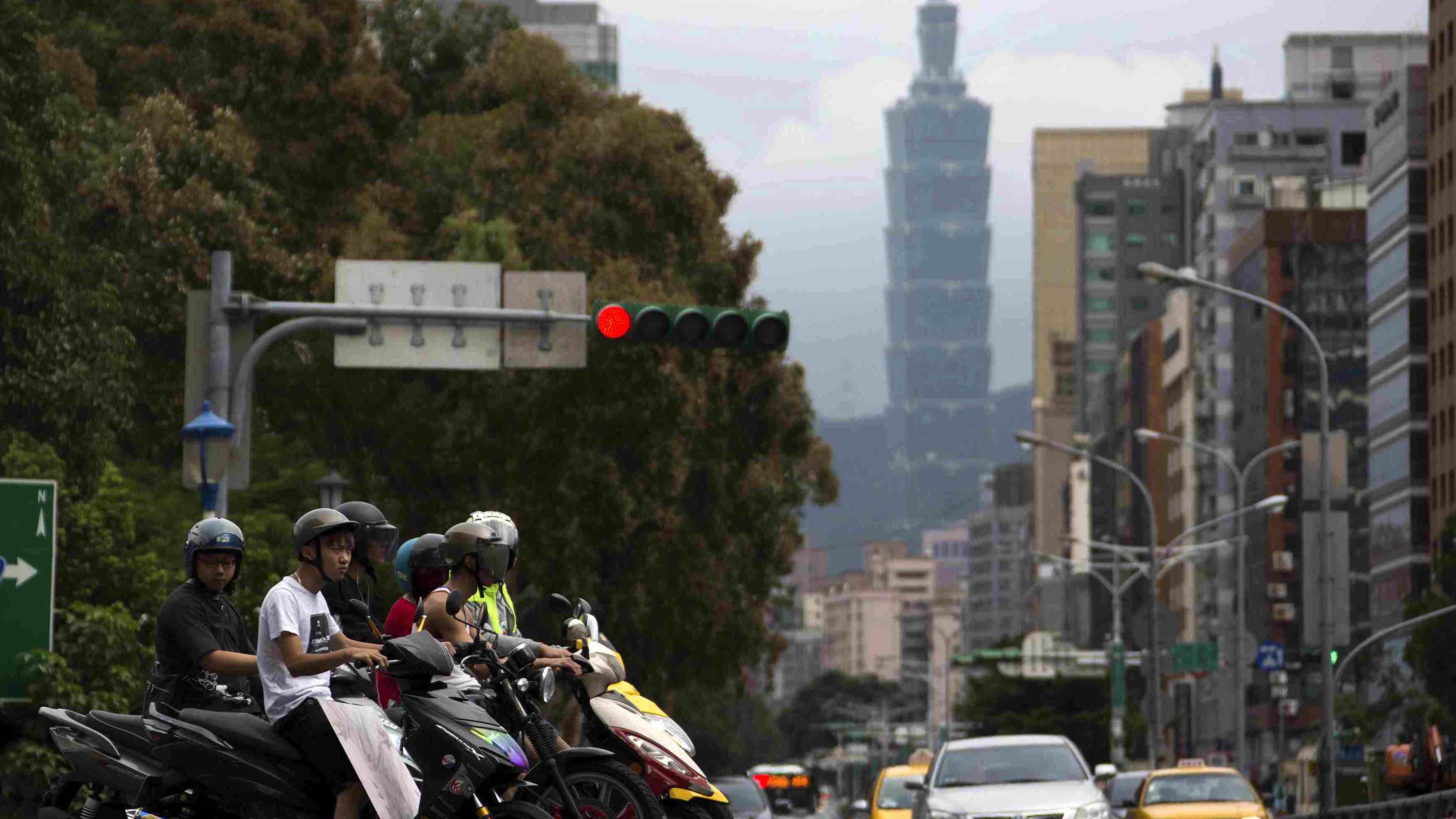
Taipei City, China's Taiwan. /VCG
Taipei City, China's Taiwan. /VCG
Editor's note: Alessandro Golombiewski Teixeira is a national thousand talent distinguished professor of public policy at the School of Public Policy and Management, Tsinghua University, and a professor of international business at Schwarzman College in Tsinghua. He is a former special economic advisor to the president of Brazil and former Brazilian minister of tourism, and minister of development, industry and foreign trade. He was also president of the World Investment Association – WAIPA. The article reflects the author's views, not necessarily those of CGTN.
Under the "one-China policy," the United States severed diplomatic relations with Taiwan and recognized it as a part of the People's Republic of China. Nevertheless, the U.S. government has always used the Taiwan issue from time to time to carry out anti-China activities and to contain China's rise.
The Biden administration has frequently pushed on Taiwan to provoke China this year, demonstrating its own presence and confirming its hegemonic status. In fact, such actions on the Taiwan issue make U.S. President Joe Biden look like "the poor donkey at its wit's end" in the Chinese fable.
The recent event connected with Lithuania is a good example. On September 13, U.S. National Security Advisor Jake Sullivan spoke with Lithuanian Prime Minister Ingrida Šimonytė by phone and declared his firm support for Lithuania's response to "coercive behavior" from China.
The White House issued a statement saying that Sullivan discussed strengthening economic, diplomatic and defense cooperation between the two countries during his call with Šimonytė. Sullivan is the third senior U.S. official to publicly "back" Lithuania, all claiming to stand with Lithuania against "Chinese coercion."
On the outside wall of Vilnius City Hall, the capital of Lithuania, there is a quote from former U.S. President George W. Bush Jr., saying, "Anyone who would choose Lithuania as an enemy has also made an enemy of the United States of America." Due to complex historical and political factors, Lithuania, a former Soviet state, has been following a "pro-American" line, insisting on anti-Russia and going further and further down the road of anti-China. However, Lithuania's own serious socio-economic problems have not been solved but have a tendency to worsen.
Egidijus Meilūnas, Lithuanian Deputy Foreign Minister, whose work includes economic and diplomatic affairs, called on the U.S. to expand access to the U.S. market for Lithuanian products, and Lithuania looks forward to providing new investment opportunities for the U.S. side.
However, regardless of the current ability of the United States to help Lithuania prosper economically, the United States will not be willing to provide any substantial help to Lithuania. After all, for the United States, Lithuania is just an insignificant political pawn. Although Lithuania's submission to the U.S. has attracted its attention in the short term, the U.S. government will still focus on the Indo-Pacific region, trying to stabilize Russia to strengthen strategic competition with China.

The Lithuanian Embassy in Beijing, capital of China, August 10, 2021. /CFP
The Lithuanian Embassy in Beijing, capital of China, August 10, 2021. /CFP
The U.S. will not change its nature of suppressing China in a short term, but whenever there is an opportunity, the U.S. will "revert to its old ways." On September 10, the leaders of China and the United States spoke on the phone again after more than half a year, and there were some rare positive signs in Sino-U.S. relations.
However, the Financial Times soon issued a report claiming that the U.S. and the Chinese Taiwan region are considering changing the name of the Taipei Economic and Cultural Representative Office in the U.S. to the "Taiwan Representative Office." If the name is indeed changed, the United States seriously provokes the "one-China policy" and boldly undermines China's sovereignty and territorial integrity.
It is easy to know that the U.S. cannot obtain any positive results by doing so, except to stimulate China and damage Sino-U.S. relations. If the U.S. repeatedly stimulates and provokes China, it will only accelerate the situation in the Taiwan Straits to the brink of conflict or even war.
As the world's largest economy, the U.S. economy always seems to be far ahead in the outside world, but from the relevant data released in recent years, the world's largest economy has been accumulating weight.
During 2016 and 2020, the U.S. GDP growth rate was 1.71 percent, 2.33 percent, 3 percent, 2.16 percent and -3.49 percent, respectively. Its GDP growth rate is unstable, with extremely poor sustainability, which has reflected the uncertainty of the U.S. economy to some extent.
In addition, in 2020, the economic growth rate appeared negative, reflecting the extremely poor diversification of the U.S. economy and the low level of risk resistance and other series of problems. At this time, the U.S. priority should be recuperating and rebuilding its economy rather than an unstable external environment.
(If you want to contribute and have specific expertise, please contact us at opinions@cgtn.com.)

